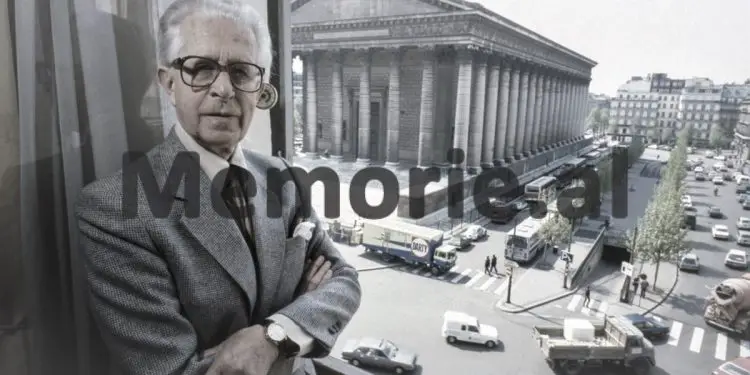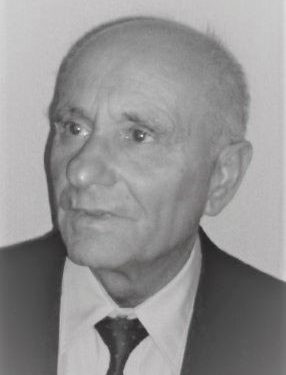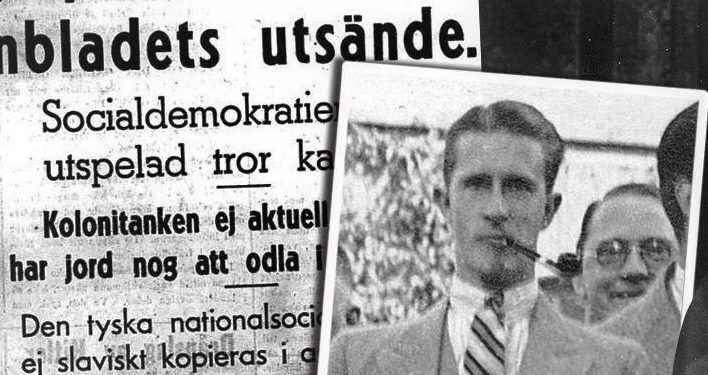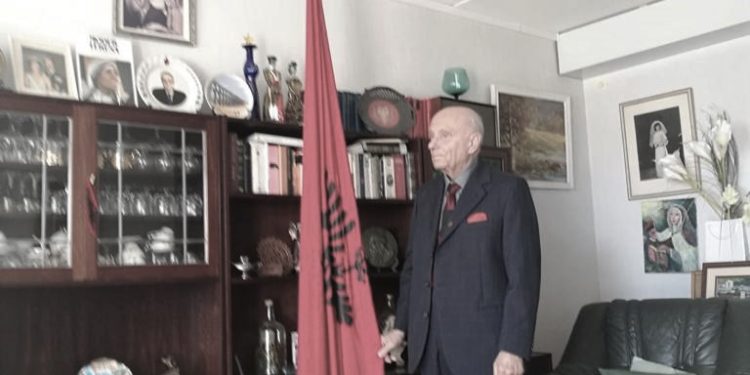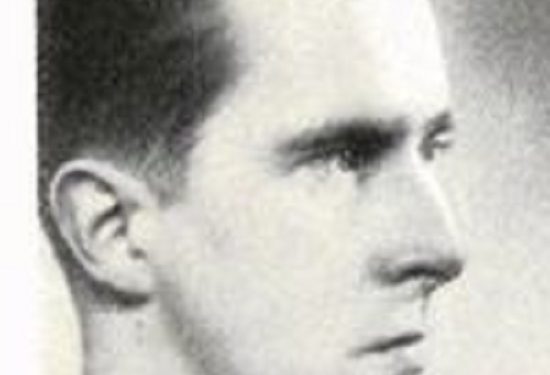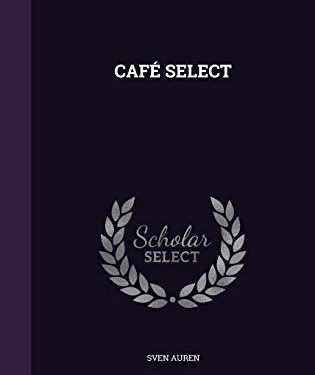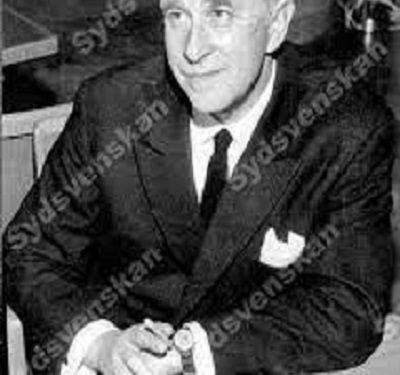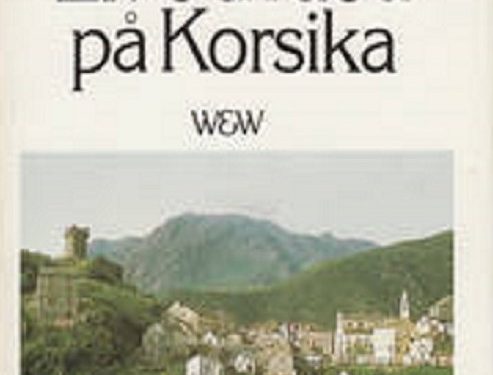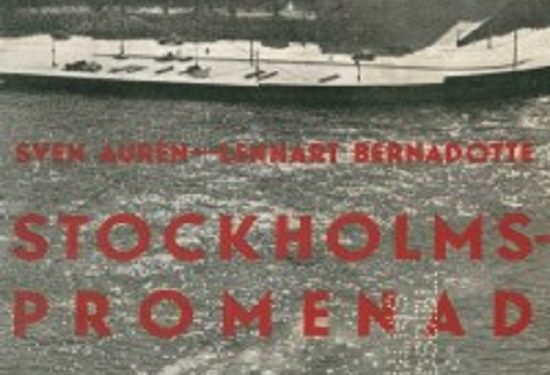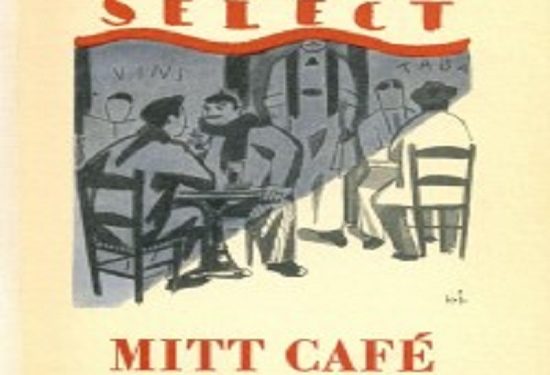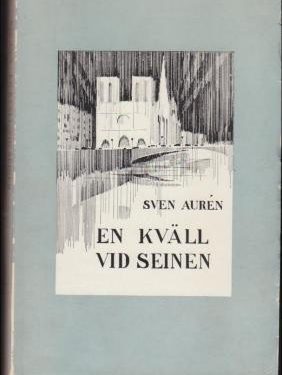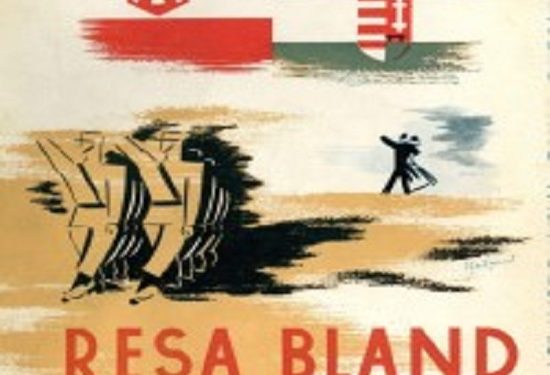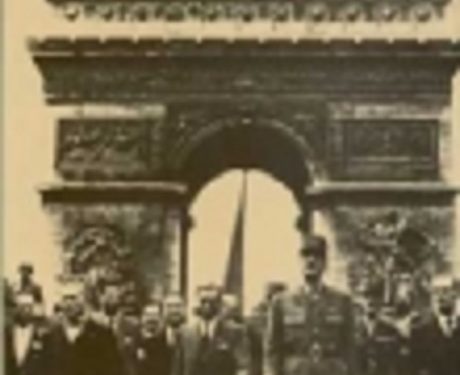Memorie.al/ Sven Anders Gustav Aurén, was born in Himmelstalund in Norrköping in 1906 and died in Paris in 1985. Also known by the nickname ‘Griggs’.
She completed her seventh year in her hometown, and high school and law in Stockholm. In 1931 he went to Tours, France, to learn the language, and there he began to write about various topics in Swedish newspapers and magazines.
During his first 10 years as a correspondent, he worked for: Swedish Radio, Dinner Newspaper (‘Aftonbladet’), New Dinner Newspaper (‘Nya Aftonbladet’), New Daily Newspaper, (‘Nya Dagligt Allehanda ‘) and the Swedish Daily Gazette (‘ Svenska Dagbladet ‘). Worked as a volunteer (unpaid) at Aftonbladet for 8 months in 1931-32, at the time of the World Economic Depression. During the car trip to Istanbul, he was very impressed by the Balkans and then, he decided to spend his honeymoon in Albania.
During the War he worked as a correspondent, everywhere in the countries he saw and occupied. From the beginning of the London bombings, he worked in England where he met many statesmen, whom he had interviewed before the Nazi occupation, in the respective states.
Sven Aurén, as a correspondent outside Sweden, not only wrote about most of the political events in Europe during the 1930s – 1940s, but also experienced them.
His memories are extraordinary experiences of contemporaneity, where in an obvious and strange way, he experienced the mixtures between calm and threat, in the pre-war years.
After his first years as a volunteer in the ‘Dinner Gazette’ (‘Evening’) (‘Aftonbladet’) – where he made a fantastic car trip Stockholm-Istanbul, witnessing the meeting between Kemal Ataturk and Reza Khan of Persia. Sven became a reporter, a flyer, and had the unique opportunity, in person, to interview Hitler.
Then followed the tasks of big politics, from 1936 for the ‘New General Newspaper of the Day’ (‘Nya Dagligt Allehanda’): interview with the President of Czechoslovakia, Eduart Benes, of Austria, Dollfus (killed by the Nazis in office St. A. Bicaku) and Schuschning (Shushning), report by “Anshlus” (‘Anschluss’) (“Union” St. A. Bicaku), the entry of the Nazis in Vienna and the “pursuit of World War”, with travel speed, on the border Poland and Lithuania, in September 1939, again Berlin, via Belgium to Paris, during the war fire, in Finland in the New Year 1940. On April 9, goes to Norway, where he meets the Royal family on the run. The appointee, General Widkud Quisling, then becomes the representative of the Nazis and the head of state of Norway (note: A. Bicaku).
When German forces were at the height of their power, Sven Auréni was invited for a press trip, Berlin – Paris – Berlin, where they showed the occupied territories; and the journey ended, with a meeting with Goebbels himself. And finally, Aurén, managed to enter London at the end of 1941, one of the cities destroyed by lightning (‘blitzen’ of the German air force St.: A. Bicaku), but which nevertheless was full of hope.
Sven Aurén visited the bunker where Hitler drank cyanide, and then, with a revolver bullet, hit himself in the forehead and where Eva Braun was poisoned. Sven Aurén, has a special ability, to make you experience events and environments that many readers seem to know themselves there, and others who have not experienced the years 1930-1940, will form an amazing experience, in this historical era, imperceptible and strange. Sveni remained in London as a journalist and radio reporter, until 1945.
From 1945 until his death in 1985, he lived in Paris as a journalist for the conservative newspaper Svenska Dagbladet, a radio reporter and writer of 55 works.
THESE ARE THE WORKS OF THE FAMOUS SWEDISH JOURNALIST, JOURNALIST AND WRITER SVEN AURA in Swedish.
Books from no. 45 were found in other libraries in Sweden and therefore the chronological order does not coincide and it was difficult to list them.
Translator Adil Bicaku
Who is Adil Bicaku?
Adil Bicaku was born in the village of Qarrishtë in Elbasan in 1938. There he completed primary school. He completed the seventh grade, “Naim Frashëri” (1951-’53) and the Pedagogical “Luigj Gurakuqi” (1954-’58) in Elbasan. “Thanks and unforgettable as long as I live my uncle Veliu, who took me to school as well as family friends, Kasem and Ryzhdi Daja (all the time) and Et’hem Arap (one year) who sheltered me at home,” he said. Mr. Bicaku, for those who helped him gets an education.
After working for five years as a teacher in the district of Fier (1958-1963), on August 8, 1963, (Thursday), together with his colleague, Mustafa Lleshanaku, he left to escape and on Saturday, August 10, was able to cross the state border and come out alive in Macedonia.
After 3 months in prison in the former Yugoslavia, Adil and his friend tried to escape to Greece, but without success. He was tortured when he was caught on the Bulgaria-Greece-Albania border.
At the end of November 1963, he managed to cross the border from Gevgelija to Greece even though they were dictated and shot, but the night saved them from the bullets of the machine guns. First in Selenik, then in Kostur, and finally in the Lavrio Camp, which has been the O.K.B. camp for the places behind the Iron Curtain. The entire Albanian nationalist anti-communist nobility, who were waiting to land in Albania to liberate Enver Hoxha from the communist dictatorship, stayed there for almost 10 years.
On July 24, 1964, Adil moved to Sweden, where he continues to live with his family. He is married to Julita (Spanish) and they have three children: Nexhip, Teuta and Ilir.
Adili first worked in a factory, then graduated from the Stockholm Technical Institute (STI) for Electrical Engineering and until 1977, worked in the telephone company “L. M. Ericsson”. After 1977, there was private activity. At the same time he worked for a few years as a teacher and translator, which he still practices today. Also, during the entire period of his stay in Sweden, he was engaged in political activity, for the issue of Albania. He wrote against the Albanian communist dictatorship all the time in exile.
Since May 22, 1968, Adili has been acquainted with the King of the Albanians, Leka I in Spain. On July 2 and 3, 1972, he attended the meeting in Madrid, which was convened by King Leka I and documented that meeting by recording it with a camera (film) and a camera.
This is because, he has been appointed by the King, as the exclusive cameraman of the royal wedding on October 10, 1975; when M.T. Leka I, married the future Queen of Albania, Suzana.
Adil returned to Albania for the first time, in September 1991, and went to the concentration camp in Fierëz, Dumreë, where there were still more than ten families of his tribe.
When it became possible in Albania in 1998, he published two booklets: “AHMET ZOGU, his life and work for Albania” and “A people that groans” (poetry and poem).
Also since 1991, he has written many articles in various newspapers published in Albania.
The book “European Orient” was introduced in 1968. With the late Queen Geraldine, we talked to go to Paris and meet the journalist, the famous writer Sven Aurén, but fate did not want it. “The king had to leave Madrid in 1979,” he said. Biçaku.
From that time on, he intended to one day translate the book “European Orient”, so that the work would be a subject of education for generations who do not know what the real Albanian was, before the advent of communist cholera. , which forcibly denatured him.
Although almost 60 years have passed, he lives abroad, at no point has he separated his thoughts and feelings from Albania. Mr. Bicaku feels that there has been a moral burden and debt, towards his country, both in the dictatorship and now in this endless transition. Memorie.al




